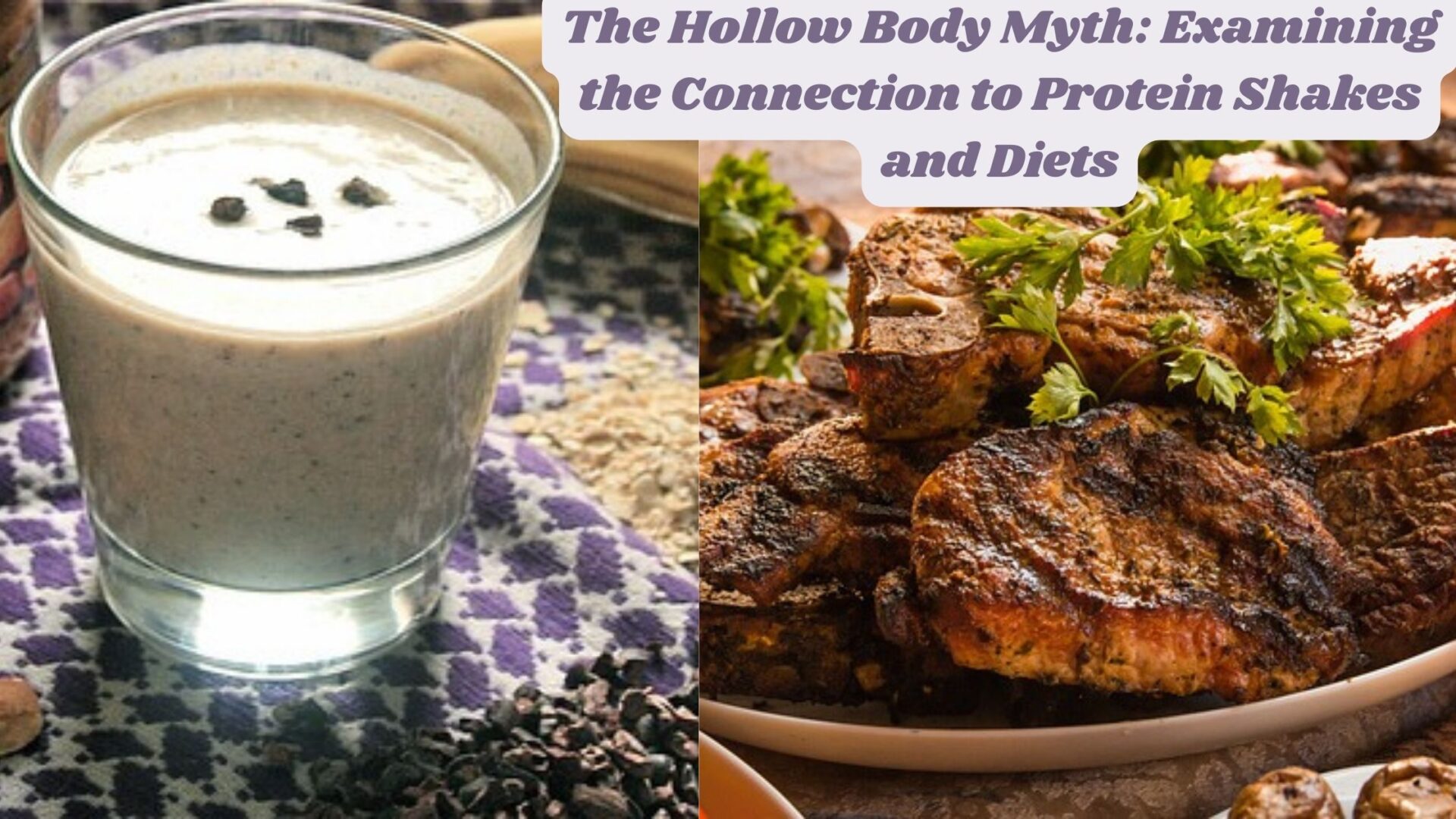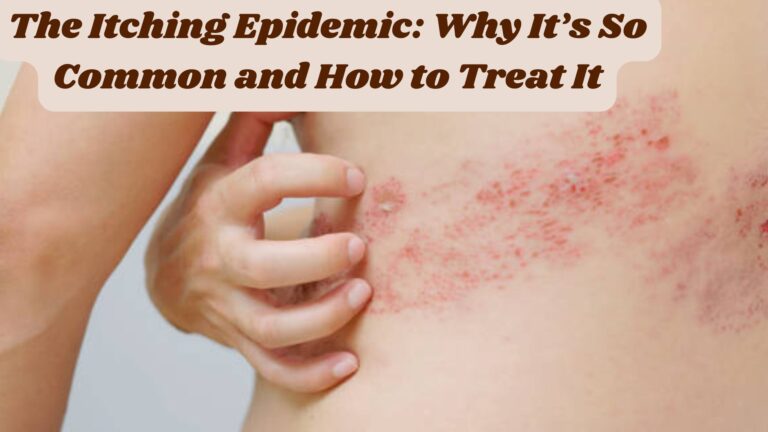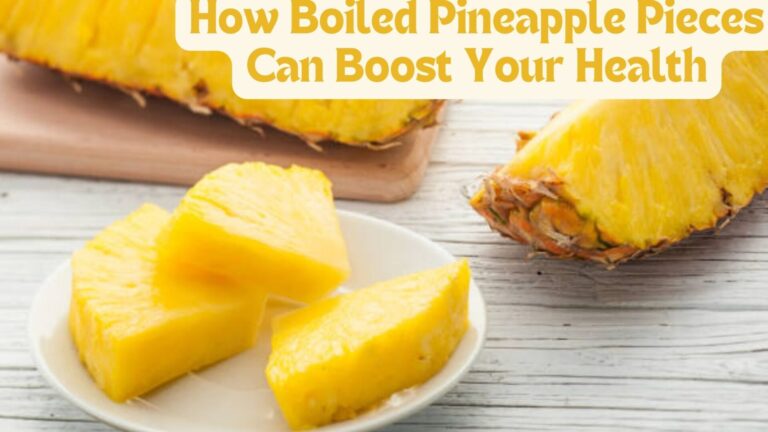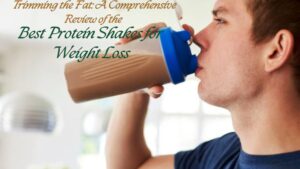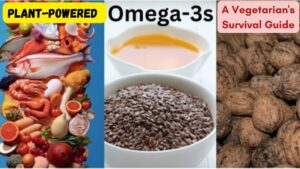Introduction:-
“Dispelling the Hollow Body Myth: A Deep Dive into the Relationship Between Protein Shakes and Diets”
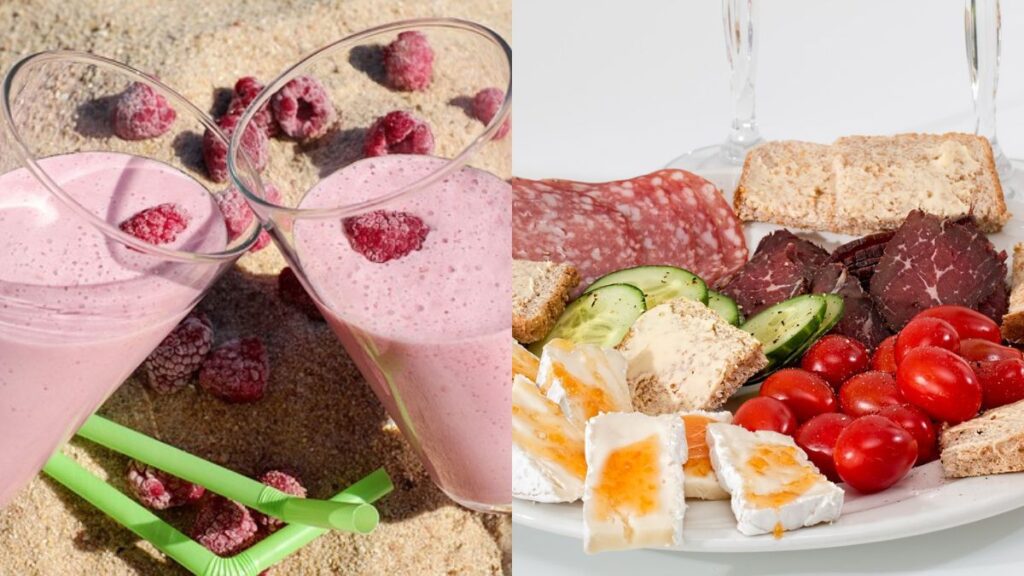
Within the domain of fitness and nutrition, misconceptions frequently propagate, and one enduring fallacy posits that protein shakes and diets rich in protein can result in a hollow body. The purpose of this article is to debunk this myth and present a thorough analysis of the veritable correlation between protein shakes, diets, and body composition.
Understanding the Hollow Body Myth:
Protein intake is essential for maintaining lean muscle mass and a well-defined physique. Protein shakes and high-protein diets do not lead to a hollow body; these misconceptions will be addressed with expert insights.
- Real-life case studies of individuals who’ve successfully incorporated protein shakes and high-protein diets into their routines.
- Importance of a well-rounded diet with a mix of macronutrients for a balanced protein intake.
- Insights and recommendations from nutritionists and fitness professionals on integrating protein shakes and high-protein diets into a balanced lifestyle.
Is protein shake good for diet?
Protein shakes can be beneficial for certain dietary goals, but whether they are “good” for a diet depends on various factors, including individual needs, health conditions, and overall diet composition. Here are some considerations:

- Protein Requirements: Proteins are vital macronutrients for tissue building, immune functions, and muscle maintenance. Protein shakes can effectively supplement your diet, especially when whole foods alone are insufficient.
- Convenience and Portability: Protein shakes are quick to prepare, portable, and convenient, making them ideal for on-the-go or busy individuals. They can be enjoyed post-workout or as snacks.
- Weight Management: Proteins promote satiety, helping you feel fuller longer. By including protein shakes in your diet, you can reduce overall calorie intake and promote a feeling of fullness, aiding in weight management.
- Muscle Building: Protein shakes with adequate protein content can support muscle growth and recovery, particularly for individuals engaged in regular physical activity, such as strength training or resistance exercises.
- Meal Replacement: In certain circumstances, protein shakes may serve as meal replacements for those controlling calorie intake for weight loss. However, it is essential to ensure a balanced nutrient intake from other meals.
On the flip side, there are considerations to keep in mind:
- Whole Foods First: Obtaining nutrients from a variety of whole foods is generally recommended over relying solely on protein shakes. A well-rounded diet ensures a balanced intake of essential nutrients.
- Ingredient Awareness: Commercially available protein shakes may contain added sugars, artificial flavors, or other potentially unhealthy ingredients. Reading labels and choosing high-quality supplements is crucial.
- Personalized Protein Intake: The ideal amount of protein varies among individuals. Factors such as age, weight, activity level, and fitness goals influence protein requirements. Consulting with a healthcare professional or registered dietitian can help determine your specific protein needs.
To summarize, protein shakes can be a valuable complement to one’s nutritional routine, especially for those pursuing specific fitness or dietary objectives. Nevertheless, it is essential to prioritize the inclusion of nutrient-rich, whole foods in the diet. When integrating protein shakes into your overall eating plan, it is imperative to take into account individual requirements and preferences for optimal outcomes.
Does taking protein shake and high protein diet really make the body hollow?
No, taking protein shakes and maintaining a high-protein diet does not make the body hollow. The idea that protein consumption leads to a hollow or emaciated appearance is a misconception. In fact, protein is an essential nutrient that plays a crucial role in building and repairing tissues, including muscles.

Here are some points to consider:
- Muscle Nourishment: Protein is the building block of muscle tissue. Consuming adequate protein through protein shakes or whole foods promotes muscle growth and prevents muscle degradation, resulting in a defined and toned physique.
- Nutrient Synergy: Maintaining a balanced diet is crucial, as protein alone does not suffice. Incorporating a variety of nutrients from carbohydrates, fats, vitamins, and minerals supports overall health and a balanced body composition.
- Individuality Matters: Body appearance is influenced by genetics, overall diet, workout routine, and lifestyle. Consuming protein shakes within a well-rounded diet and fitness plan does not lead to a hollow body.
- Dispelling Myths: The notion that protein shakes or high-protein diets cause a hollow body is a misconception. Rely on evidence-based information and consult nutritionists or fitness professionals for personalized guidance.
- Protein Balance: Consuming excess protein beyond your body’s needs may not provide added benefits and could lead to imbalances. Moderation and balance in protein consumption are essential.
To summarize, integrating protein shakes and a high-protein diet can positively contribute to overall health, muscle development, and various bodily functions when approached in a balanced and sensible manner. Contrary to some misconceptions, it does not result in a hollow body. If you have specific concerns regarding your body composition or nutritional needs, it’s recommended to seek personalized guidance from a healthcare professional or registered dietitian. They can provide tailored advice based on your individual requirements and goals to ensure a well-rounded and balanced approach to nutrition.
Conclusion:
Upon scrutinizing scientific evidence and expert viewpoints, the hollow body myth linked to protein shakes and diets appears to be unsubstantiated. By comprehending the role of protein in body composition, refuting preconceived notions, and advocating a balanced approach, individuals can make informed decisions.
FAQs:
- What is the hollow body myth?
The hollow body myth refers to the misconception that achieving a lean, muscular physique necessarily entails a “hollow” or sunken appearance in the abdominal area. This misconception often leads individuals to adopt extreme dietary measures or rely excessively on protein shakes, assuming these are necessary for achieving the desired physique.
- What role do protein shakes play in the hollow body myth?
Protein shakes are often associated with the hollow body myth because they are believed to be essential for building muscle and achieving a lean physique. However, while protein is indeed important for muscle repair and growth, excessive reliance on protein shakes alone without proper nutrition and exercise can perpetuate unrealistic body image expectations.
- Do protein shakes cause a hollow body appearance?
No, protein shakes themselves do not cause a hollow body appearance. Achieving a lean, muscular physique is primarily dependent on factors such as proper nutrition, regular exercise, sufficient rest, and genetics. Consuming protein shakes in moderation as part of a balanced diet can support muscle growth, but they are not a magic solution for achieving a specific body shape.
References:
- Brad Schoenfeld, Alan Aragon, James W. Krieger. (2013). The effect of protein timing on muscle strength and hypertrophy: a meta-analysis. Journal of the International Society of Sports Nutrition.
- Helms ER, Aragon AA, Fitschen PJ. (2014). Evidence-based recommendations for natural bodybuilding contest preparation: nutrition and supplementation. Journal of the International Society of Sports Nutrition.
- NEDA (National Eating Disorders Association). (2021). Eating Disorders Statistics.
- Murray SB, Griffiths S, Mond JM. (2016). Evolving eating disorder psychopathology: conceptualising muscularity-oriented disordered eating. The British Journal of Psychiatry.
- Tylka TL, Bergeron D, Schwartz JP. (2005). Development and psychometric evaluation of the Male Body Attitudes Scale (MBAS). Body image.
